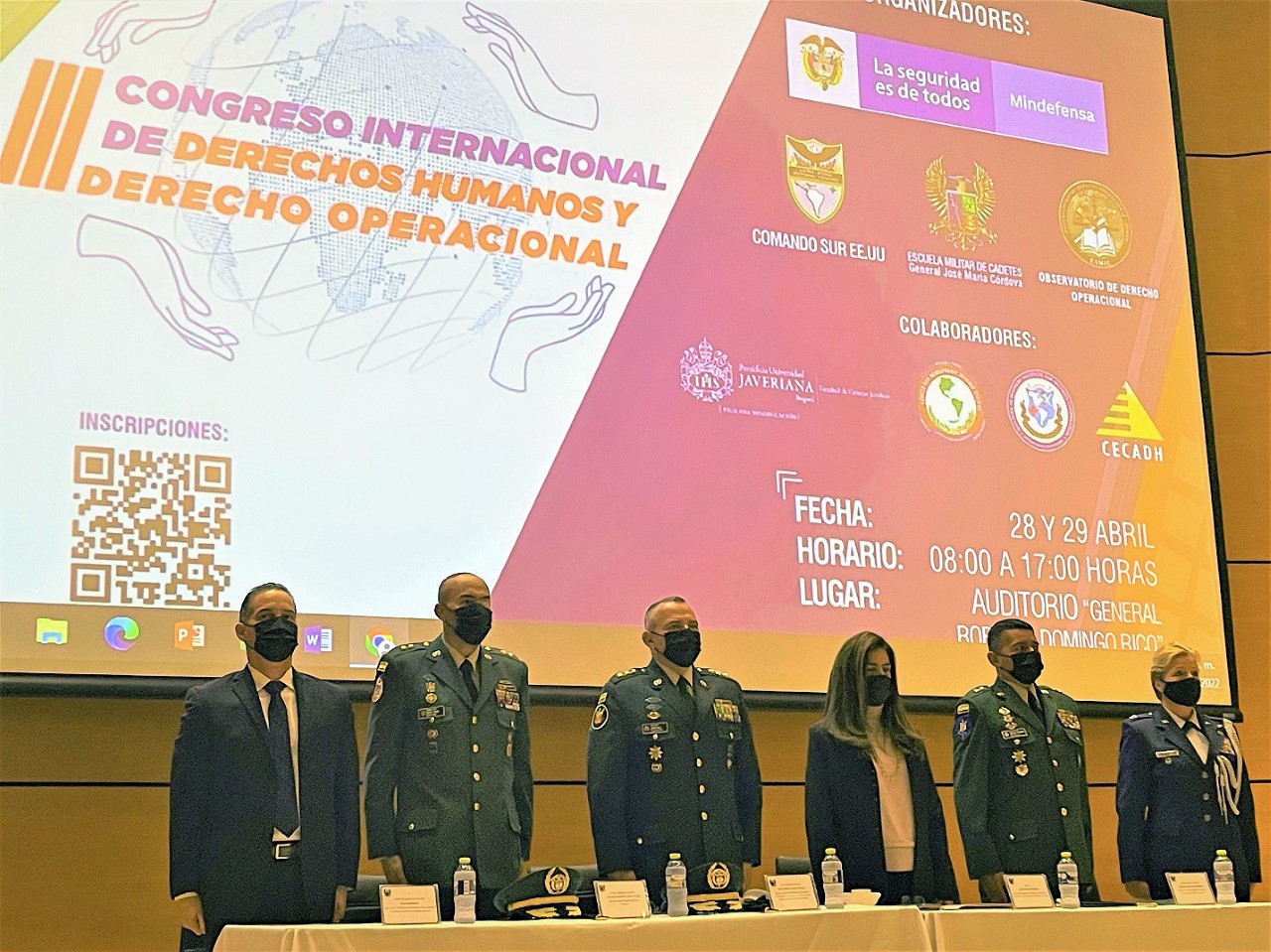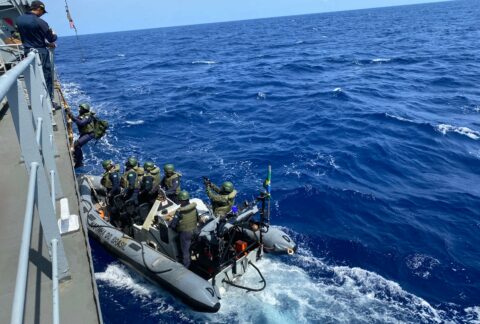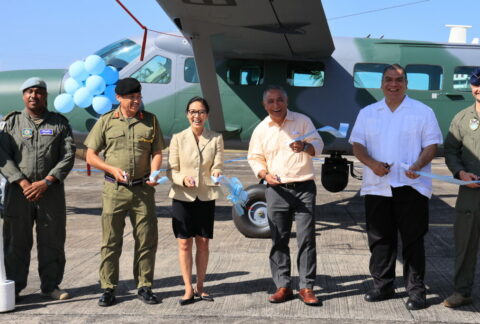A man advances with a machete toward a Colombian service member who during a patrol finds an illegal coca leaf plantation. A member of the LGBTQ community refuses to be searched by a uniformed male soldier. An indigenous man returns from a hunt to find his wife and child surrounded by camouflaged soldiers and threatens them with arrows. These are just some of the scenarios students of the Human Rights (HR) and International Humanitarian Law (IHL) course from the Sargento Inocencio Chincá Noncommissioned Officer Military School, in Tolemaida, Cundinamarca department, presented. In the audience was a group of representatives from U.S. Southern Command (SOUTHCOM) Human Rights Office and their counterparts from partner nations. The presentation was part of preliminary activities to the III International Seminar on Human Rights and Operational Law, which took place April 28-29, 2022.
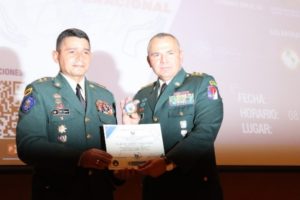
“Members of the public force may use their authority to fulfill their constitutional mandate as long as the norms, international standards, and protocols for this are fully respected and applied, under full observance and respect for human rights,” said Dr. Sandra Álzate Cifuentes, Colombian Defense Ministry’s vice minister of Defense and Security Policies, in her opening speech at the General José María Córdova Military Cadet Academy (ESMIC), in Bogotá. “As such, the strictest behavior is demanded from each of the men and women of the public force when developing military operations and police procedures, and in-depth training is required in the proper use of weapons with an emphasis on human rights.”
Right to life
Colombian Army Brigadier General Giovanni Valencia Hurtado, ESMIC commandant, and Colombian Army Major General Javier Alberto Ayala Amaya, commander of the Joint Strategic Transition Command, spoke next. “The terms of international human rights law compel us, as public servants, to respect and be guarantors of the universal mandate of the right to life in the face of all human rights. We, as military forces, represent our citizens, and our duty is to protect them,” Maj. Gen. Ayala said.
The presentations continued with a brief explanation on the general principles of SOUTHCOM Human Rights Office from its Acting Chief José Rodríguez, and a synopsis of the Human Rights Initiative by Daniel Baldizón, director of Costa Rica’s Human Rights Initiative Secretariat of Support and Implementation. The analysis panels followed, with themes such as “The Use of Force from a comparative perspective” and “The Inter-American Standards on the use of International Humanitarian Law.”
Doctrine for the public force
On the second and last day of the seminar, Dominican Army Colonel Ernesto Jiménez de los Santos, commandant of the Ministry of Defense’s School of Human Rights and International Humanitarian Law, said that his country has an HR and IHL Training and Educational Regional Center, which provides support and training to Central American countries, which is set to become a benchmark in this region of the Caribbean. “The Dominican Republic is making progress in raising awareness on the importance of HR and IHL through a consensus document approved by the national government. This document establishes the importance of generating doctrine for the public force in human rights, education and training, internal control of compliance with regulations, and the importance of joint work between civilian authorities and the public force,” he added.
Peruvian Army Colonel Gerber Rubio, director of the Defense Ministry’s Center for Human Rights and International Humanitarian Law, said that the implementation of HR and IHL in Peru focuses specifically on the support that the country’s Armed Forces provide to the National Police in the social protests that occur in the national territory, to establish a mechanism for the protection of human rights. “The National Police must apply the same principles of protection of civilians, and the proportional use of force,” he said.
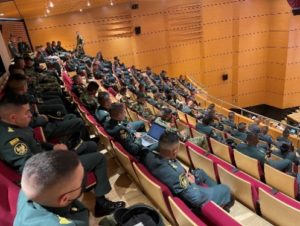
Guatemalan Army Colonel Mario Chupina’s presentation was virtual. Among other things, the Colonel recalled that the Guatemalan Peace Accords were signed in 1991, followed by a struggle for the defense of HR, specifically by the Armed Forces. In 2019, the Guatemalan Armed Forces developed the Operational Law Manual, with the support of Colombia and the United States, and subsequently developed a Navy operations handbook, and included the Defense Ministry’s HR and IHL policies.
Invasion of Ukraine
Speaking specifically about Russia’s invasion of Ukraine, Dr. Patrick Paterson of the William J. Perry Center for Hemispheric Defense Studies in Washington, D.C., said, “War crimes are serious violations of IHL that occur as part of a large-scale plan or policy. These atrocities often occur during conflict as killing becomes commonplace and normalized. The enemy becomes dehumanized, and soldiers suffer psychological trauma on the battlefield or even from being recklessly aggressive in the use of military force.”
Among the examples of war crimes Dr. Paterson highlighted were intentional killing of civilians or prisoners, torture, needless destruction of civilian property, using people as human shields, rape, and underage recruitment. He added that war crimes are different from crimes against humanity. The latter are grave breaches of human rights law, which can be committed in times of both peace and war.
The afternoon presentations and panels were more technical, dealing with the legal implementation of different national and international frameworks.
SOUTHCOM Human Rights Office’s next seminar will be held in Asunción, Paraguay, in late June. Carolina González from Diálogo contributed to this report.

